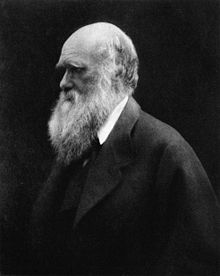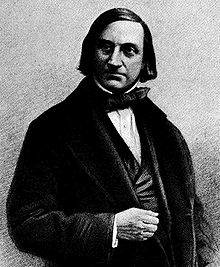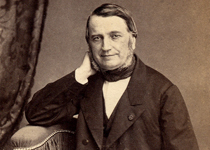Charles Darwin
Darwin, Charles
Charles Darwin (1809-1882) is reported in Wikipedia (a) to have been “dismissive of the ideas that others had put forward of sunken continents like Atlantis.” This opinion is dated to around 1855.
Edward Forbes was one of the first, in 1846 [1471], to hypothesise the existence of a continent in the Atlantic linking Ireland, the Azores and the Iberian Peninsula, which was popularly called ‘Atlantis’. Charles Darwin described his idea as ‘speculative’.
This would appear to conflict with Marco Ciardi, who claimed that Darwin had accepted the existence of Atlantis, I presume later, but did so “under the influence of, among others, the botanist J. D. Hooker” and “reverted to the hypothesis of a lost continent to which the Atlantic islands testified since they constituted the tips of its highest mountains.” This information was cited by Pierre Vidal-Naquet in The Atlantis Story [580.xxii].
Ignatius Donnelly sent a copy of his Atlantis to Darwin, but received a less than enthusiastic response(b).
(a) https://en.wikipedia.org/wiki/Development_of_Darwin%27s_theory
(b) https://www.jasoncolavito.com/blog/friday-odds-and-ends-on-aliens-atlantis-and-more
Forbes, Edward
Edward Forbes (1815-1854) was a naturalist from the Isle of Man who became president of the Geological Society of London in 1853 and the following year was appointed professor of natural history at the University of Edinburgh. Unfortunately, his tenure was short lived as he died within less than a year.
Geological Society of London in 1853 and the following year was appointed professor of natural history at the University of Edinburgh. Unfortunately, his tenure was short lived as he died within less than a year.
Forbes was one of the first, in 1846[1471], to hypothesise the existence of a continent in the Atlantic linking Ireland, the Azores and the Iberian Peninsula, and that this was popularly called ‘Atlantis’. Charles Darwin described Forbes’ idea as ‘speculative’.
Lipsius, Justus
Justus Lipsius (Joest Lips) (1547-1606) was a Flemish humanist, philologist and an advocate for the revival of Stoicism in the 16th century. In Book One, chapter 16 of the De Constantia (Book of Constancy) he unequivocally states his belief in the reality of Atlantis(a).*The original as well as an English translation are available online [1493].*
revival of Stoicism in the 16th century. In Book One, chapter 16 of the De Constantia (Book of Constancy) he unequivocally states his belief in the reality of Atlantis(a).*The original as well as an English translation are available online [1493].*
He also speculated on a migration of animals from Africa to America by way of Atlantis, which he considered to be a large landmass in the Atlantic, recorded in the correspondence of Charles Darwin(b).
The Justus Lipsius Building in Brussels has been the headquarters of the Council of the European Union since 1995.
(a) https://people.wku.edu/jan.garrett/lipsius1.htm
(b) https://books.google.co.uk/books?id=jTON1MPaa6IC&pg=PA255&lpg=PA255&dq=%22Justus+Lipsius%22+Atlantis&source=bl&ots=Nutc7vkvz1&sig=mzLdl0Bip7i8ptylXmU0PUUTEF4&
hl=en&sa=X&ei=7OAbUsPUO4mM7QbtooGABA&ved=0CD0Q6AEwAg#v=
onepage&q=%22Justus%20Lipsius%22%20Atlantis&f=false
Godron, Dominique Alexandre
Dominique Alexandre Godron (1807-1880) was a French botanist and professor of natural history at Nancy University, who, in 1868, founded  “The School of Atlantis” in North Africa. Godron believed that Atlantis was to be found in the Sahara desert and delivered a series of lectures(a) on the subject at the University. Both Godron and Berlioux were inspired by the writings of Diodorus Siculus who wrote extensively about ancient North Africa.
“The School of Atlantis” in North Africa. Godron believed that Atlantis was to be found in the Sahara desert and delivered a series of lectures(a) on the subject at the University. Both Godron and Berlioux were inspired by the writings of Diodorus Siculus who wrote extensively about ancient North Africa.
>Atlantisforschung informs us that Godron was also interested in pre-Columbian voyages to America by Asian and European seafarers at the same time, and published at least two papers on this(b).<
Godron was known to have corresponded with his contemporary Charles Darwin, on botanical matters.
